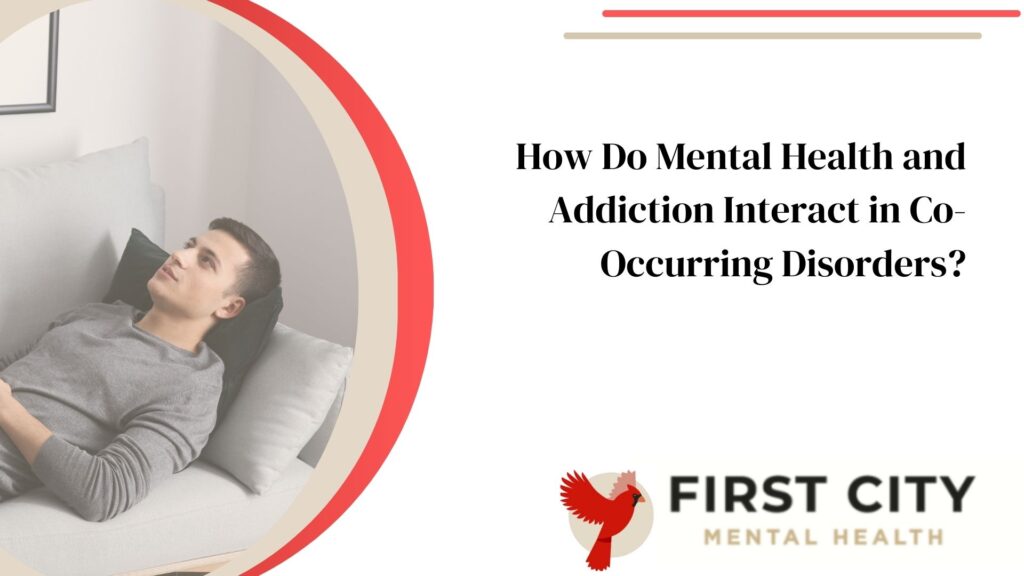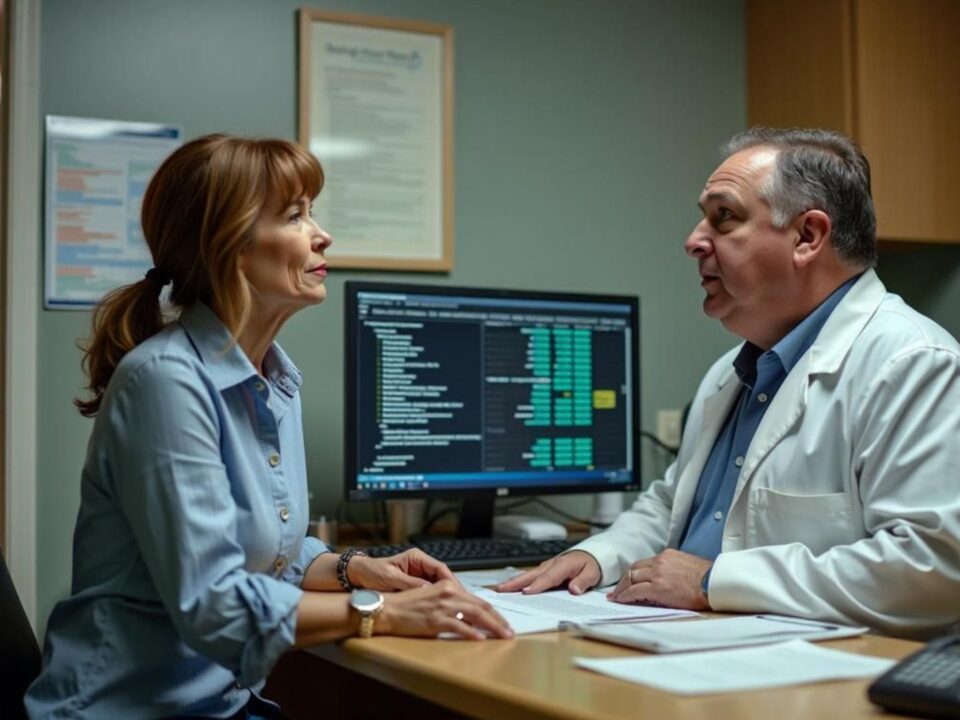
How Do You Recognize if You Need Co-occurring Disorders Treatment?
January 21, 2025
How Effective Is Integrated Co-Occurring Disorders Treatment?
January 21, 2025Are you or a loved one struggling with both mental health issues and substance use? You’re not alone. Many people face co-occurring disorders treatment, which means they have both a mental health disorder and a substance use disorder at the same time.
This makes treatment more complex than treating either condition alone.
Treating co-occurring disorders requires special care because it deals with two conditions that affect each other. One relevant fact is that nearly 50% of people with severe mental illness are also affected by substance abuse.
You’ll learn why treating co-occurring disorders is unique and how to find the right help. Keep reading to understand what makes treatment for these combined conditions different from others.
Key Takeaways
- Treating co-occurring disorders needs special care because mental health and substance use problems affect each other.
- Integrated care, which treats both issues simultaneously, is key for recovery.
- Early diagnosis and personalized substance abuse treatment plans help manage these disorders better.
- Specialized programs offer complete support and increase the chances of long-term recovery.
Understanding Co-Occurring Disorders
Dual diagnosis, refers to the simultaneous presence of two or more mental health disorders or illnesses in an individual. This can include any combination of mental health conditions, such as major depression, anxiety disorders, or personality disorders, along with a substance use disorder. Diagnosing and treating co-occurring disorders can be particularly challenging because the symptoms of one condition can often mask or exacerbate the symptoms of the other.
According to the Substance Abuse and Mental Health Services Administration (SAMHSA), co-occurring disorders are quite common. Studies suggest that up to 50% of individuals with a substance use disorder also have a co-occurring mental health condition. Effective treatment for co-occurring disorders requires a comprehensive approach that addresses both conditions simultaneously, ensuring that neither is neglected.
What Makes Co-Occurring Disorders More Complex to Treat?

Co-occurring disorders treatment Kokomo, Indiana involve both a mental disorder and a substance use disorder, making treatment complex. Symptoms of one disorder can worsen the symptoms of the other.
If both conditions are not treated at once, relapse rates are higher.
Treatment needs to address both issues simultaneously. Longer treatments are often required due to this complexity. A multidisciplinary team is essential for effective treatment. An integrated approach combining therapy, medication, and support services is necessary.
Symptoms from one condition often make the other worse.
Signs and Symptoms of Co-Occurring Disorders
Identifying integrated treatment for co-occurring disorders can be tricky, as the symptoms of one condition can often mask or worsen the symptoms of the other. However, there are some common signs and symptoms that may indicate the presence of co-occurring disorders. These can include:
- Difficulty managing daily life and relationships
- Increased substance use or experiencing withdrawal symptoms
- Mood swings or noticeable changes in behavior
- Difficulty sleeping or significant changes in appetite
- Heightened anxiety or depression
- Suicidal thoughts or behaviors
If you or a loved one is experiencing any of these symptoms, it’s crucial to seek professional help. A mental health professional can assess the individual’s symptoms and develop a treatment plan that addresses both conditions effectively.
Why Is Integrated Care Essential for Co-Occurring Disorders?
Integrated care treats both mental health and substance use issues at the same time. This approach is critical for recovery because these problems often interact in complex ways, with mental illnesses exacerbating addiction and vice versa. Mental health can make addiction worse, and addiction can harm mental health.
People with co-occurring disorders need longer co occurring disorders treatment. A team of experts works together to plan this care. They create a personalized plan that fits each person’s needs. This method covers all aspects of their condition and promotes long-term recovery.
How Do Mental Health and Addiction Interact in Co-Occurring Disorders?

Integrated care helps because mental health and addiction interact in complex ways. People with co-occurring disorders often use drugs or alcohol to cope with emotional pain, which makes substance use disorders and mental health symptoms worse over time.
Mental health issues like depression and anxiety can lead to substance abuse. Addiction, in turn, worsens these mental health problems. Effective treatment must address both issues at once.
Integrated treatment for co-occurring disorders use therapy, medication, and support groups for the best results. Treatment plans must be personalized to meet each person’s unique needs.
When Should You Begin Treatment for Co-Occurring Disorders?
Mental health and addiction disorders often occur together, creating more complex challenges that require early treatment to prevent complications. Early treatment is crucial to prevent complications. Treatment for co-occurring disorders should start as soon as both conditions are identified.
Avoid delays, as postponing can worsen symptoms of both substance use and underlying mental disorders.
Begin treatment once the person shows readiness and willingness to engage. Regular assessments help determine the right timing for treatment for co-occurring disorders. Starting early increases chances of success in a co-occurring disorders treatment program in Kokomo, Indiana, or other locations offering specialized care.
Where Can You Find Specialized Co-Occurring Disorders Programs?
Specialized co-occurring disorders treatment centers programs are in mental health facilities and treatment centers. These programs focus on helping people with both mental health and substance abuse treatment needs.
Access is crucial, especially in areas like Kokomo, Indiana, where mental health care needs are high.
Traditional treatments often fail because they do not address both conditions together. Integrated care for co-occurring disorders offers a complete approach that treats all issues simultaneously.
Why Do Traditional Treatments Often Fall Short for Co-Occurring Disorders?
Traditional treatments for single disorders often miss the intricate aspects of adult co-occurring disorders treatment
, which involve both a mental disorder and a substance use issue. Individuals with both mental health and substance use issues need specialized care.
Traditional approaches usually target one problem at a time, leaving the other untreated. This can lead to incomplete recovery.
Integrated treatment for co-occurring disorders involves addressing both conditions together. Mental health issues and addiction are deeply linked. Treating them separately may result in relapse or worsening symptoms.
A combination of therapies is essential to manage these interconnected problems effectively.
What Role Does Diagnosis Play in Effective Co-Occurring Disorders Treatment?
Diagnosis helps in treatment for co occurring disorders by identifying the specific mental disorders and substance use issues involved. Early diagnosis is key for managing these disorders well. Accurate checks stop conditions from getting worse. It also shows the best mix of medicine and therapy needed.
A correct diagnosis shapes a customized treatment plan. Severity checks can mean longer treatment times are needed. Diagnosis sets apart how we treat co-occurring issues from single ones, ensuring better care.
Next, find out why personalized care plans are critical for co-occurring disorders.
Why Personalized Care Plans Are Critical for Co-Occurring Disorders?

Personalized care plans are crucial for treatment of co-occurring disorders. These disorders involve both mental illnesses and substance use problems, making treatment more complex.
Standard treatments often fail because they need to address the unique needs of each individual. Personalized care plans focus on specific emotional and psychological challenges faced by people with these conditions.
The risk of suicide is higher in individuals with co-occurring disorders, highlighting the need for specific interventions. For example, mood disorders like bipolar disorder require personalized strategies to manage extreme mood changes.
Effective treatment combines therapy, medication, and other methods suited to the individual’s needs for better outcomes.
Self-Help Strategies for Managing Co-Occurring Disorders
While professional treatment is essential for managing co-occurring disorders, there are also some self-help strategies that can be beneficial. These strategies can complement professional care and help individuals manage their symptoms more effectively. Some useful self-help strategies include:
- Practicing stress management techniques, such as meditation or deep breathing exercises
- Engaging in regular physical activity or exercise
- Ensuring adequate sleep and maintaining a healthy diet
- Avoiding triggers that may lead to substance use or exacerbate mental health symptoms
- Building a support network of friends, family, or support groups
- Keeping a journal or log to track symptoms and progress
It’s important to remember that self-help strategies should not replace professional treatment. However, they can be a valuable addition to a comprehensive treatment plan, helping individuals manage their symptoms and improve their overall well-being.
Group Support for Co-Occurring Disorders
Group support can be a vital component of treatment for co-occurring disorders. Support groups provide a safe and supportive environment where individuals can share their experiences and connect with others who are facing similar challenges. There are many different types of support groups available, including:
- Twelve-step programs, such as Alcoholics Anonymous (AA) or Narcotics Anonymous (NA)
- Support groups for specific mental health conditions, such as depression or anxiety
- Dual diagnosis support groups, which address both substance use and mental health disorders
- Online support groups, which can be a convenient option for those who cannot attend in-person meetings
Group support can provide a sense of community and connection, which can be essential for managing co-occurring disorders. Being part of a supportive group can help individuals feel less isolated and more understood, which can be a crucial part of their recovery journey.
Helping a Loved One with Co-Occurring Disorders
Supporting a loved one with co-occurring disorders can be challenging, but there are steps you can take to help them on their recovery journey. Here are some ways you can provide support:
- Educate yourself about co-occurring disorders and the treatment options available
- Encourage your loved one to seek professional help and support their treatment plan
- Offer emotional support and encouragement, being patient and understanding
- Help your loved one stay on track with their treatment plan, including attending appointments and following prescribed therapies
- Set boundaries and prioritize your own self-care to avoid burnout
It’s important to remember that you cannot force someone to seek help or recover from co-occurring disorders. However, your support and encouragement can be an essential part of their recovery journey, helping them feel less alone and more motivated to pursue treatment.
Final Thoughts
Co-occurring disorders treatment program needs different methods. Both mental health and substance use must be treated together for better results. Integrated care is key to handling these complex cases efficiently.
Specialized programs offer customized support, making recovery more likely. Start treatment early to improve success rates.
F.A.Q.s
Why is treatment for co-occurring disorders different from other conditions?
Treatment for co-occurring disorders requires addressing both mental health and substance use issues at the same time. This integrated approach ensures better outcomes.
What makes co-occurring disorders treatment in Kokomo, Indiana, unique?
Co-occurring disorders treatment in Kokomo, Indiana, offers specialized programs that focus on treating both conditions together, providing comprehensive care tailored to individual needs.
How does the treatment of co-occurring disorders differ from standard addiction treatments?
The treatment of co-occurring disorders involves a dual-focus approach that treats mental health and addiction simultaneously, unlike standard addiction treatments, which often address only substance use.
Are there specific challenges in the treatment for co occurring disorders?
Yes, treating these conditions can be complex because it requires coordinated care between mental health professionals and addiction specialists to ensure all aspects are properly managed.






